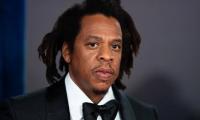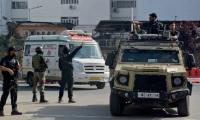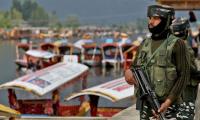Donating organs after death, with consent and in line with ethical standards, is not only permissible in Islam but also considered an act of Sadaqah Jariyah (ongoing charity), leading Islamic scholars, including the chairman of the Council of Islamic Ideology (CII), affirmed in a joint declaration on Thursday.
Speaking at a seminar organised by the Dow University of Health Sciences (DUHS) ahead of an international organ transplant conference, Islamic scholars and health professionals called for highlighting the significance of organ donation, including kidney, liver and blood donations by living donors, in saving precious lives.
Similarly, they urged the promotion of cadaver or deceased donor transplants by emphasizing the importance of organ donations from brain-dead individuals, with complete consent from their families and full respect for the dignity of unclaimed persons, to save the lives of others.
Allama Dr Raghib Hussain Naeemi, the CII chairman, emphasised that brain death should be declared by qualified doctors before any decision was made to withdraw life support.
“Once brain death is confirmed, it is Islamically permissible to remove the ventilator, and with prior consent or family approval, the organs of the deceased can be donated to save other lives,” he stated. “This not only serves humanity but allows the ventilator to be used for another patient with better chances of survival—this too is a life-saving act.”
He also stressed the need for distinguishing between clinical and Islamic definitions of death and suggested forming a registry of scholars and medical experts to oversee organ donation cases, ensuring both scientific accuracy and Shariah compliance.
DUHS Vice Chancellor Prof Muhammad Saeed Quraishy called organ transplantation a noble act that aligned with the Islamic principle of preserving life. He acknowledged the critical role of religious scholars in addressing public concerns and shaping ethical medical practices.
Former CII chairman Allama Muhammad Khan Sherani reiterated that Islam allowed organ donation but called for utmost caution and transparency in the process. “The process of organ transplantation must be executed with great care, integrity, and strict adherence to ethical principles,” he said.
Shia scholar Allama Shahenshah Hussain Naqvi said saving human life is of paramount importance in Islam. “If the donor is not harmed and consent is present, organ donation is not only allowed—it is encouraged. Even if organs from animals are used, the sanctity of human life takes precedence over whether the animal is halal or haram,” he said.
Mufti Muhammad Ramzan Sialvi explained that organ donation was justified under the Islamic legal principle of opting for the lesser of two harms.
Dr Mufti Mazhar Fareed Shah highlighted the significance of a pure intention behind donation and respectful handling of human remains.
Prof Dr Noor Ahmed Shahtaz warned against using deceased bodies for unnecessary experimentation when artificial alternatives existed, emphasising the importance of preserving the dignity of the dead.
Dr Rashid bin Hamid, president of the Dow Organ Donation Society, revealed that as many as 50,000 lives could be saved annually in Pakistan through organ donations. “We must launch wide-scale public awareness campaigns to change perceptions and promote this life-saving practice,” he urged.
Dr Shehzad Anwar, Dr Tauqeer Abbas, Prof Dr Asim Ahmed, Prof Mansoor Moheyuddin, Dr Sohail Rao, Prof Nazli Hussain and Prof Jehan Ara Hasan also participated in the seminar.
Representational image of a handcuffed man. — Pexels/FileThe Shah Latif police on Tuesday solved a murder case...
Sindh High Court building in Karachi. — SHC website/FileThe Sindh High Court on Tuesday issued notices to the...
Karachi Mayor Barrister Murtaza Wahab chairs a meeting at his office on April 19, 2025. — Screengrab via...
Representational image of a robbery at gunpoint. — APP/FileA man was shot dead allegedly during a robbery attempt in...
The front of the Sindh High Court building in Karachi. — AFP/FileThe Sindh High Court has proposed that a committee...
Representational image shows prisoners sitting inside a dark lockup. — AFP/FileAn anti-terrorism court on Tuesday...







